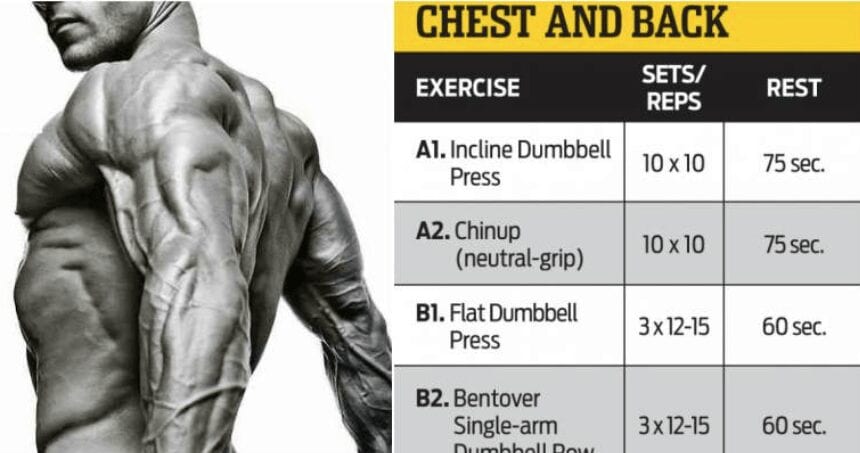
Washington DC has a lot to offer fitness enthusiasts. Washington DC has a variety of sports teams that are popular with die-hard fans, such as the Nationals Wizards Capitals. The Capital is also home to many parks, gymnasiums, fitness centres and health centers for residents to get some exercise.
Personal trainers in Washington DC help people achieve their fitness goals through a variety of methods and techniques. They work with individuals to design a personalized exercise program that suits their unique needs, interests and lifestyle. They must also ensure their clients have a good understanding of nutrition.
They can offer a variety fitness programs such as yoga, weight-training, Crossfit or other fitness types. They can also train at different intensities to meet the fitness needs of their clients.
Washington DC Personal Trainers often work for both social service and private organizations in addition to gyms and fitness centres. They can be busy and earn a good income.

According to the U.S. Bureau of Labor Statistics (BLS), Washington DC personal trainers earn an average of $43,120 annually. However, many trainers who are self-employed can earn much more.
Washington DC personal trainers are a good career option for those who wish to improve the lives of others through their fitness and nutrition expertise. This rewarding career pays well and has friendly co-workers.
Train as a personal trainer in Washington DC
Washington DC Personal Trainers work with all types of clients. They can be young parents or athletes to professionals and professionals that live and work there. Your knowledge in fitness and nutritional issues will be valuable for achieving your clients' health and wellness goals.
Washington DC's personal trainers have to teach the basics of fitness. They must also develop workout programs. They will evaluate clients' progress. And they should encourage them continue exercising long after their sessions. Special training and certifications can be used to enhance your credentials and help you stand out from your competitors.
You can get certified in a few different ways. These include the American Council on Exercise, the National Strength and Conditioning Association, the National Federation of Personal Trainers and the World Instructor Training School. You can also earn specialty certificates in specific areas, such as injury rehabilitation or specialized fitness.

To become a fitness trainer in your area, you should go to college and learn all that you can on nutrition and exercise. You can then work hard to become a trainer in your locality.
To have a successful Washington DC-area personal training career, you need to find the right niche. You also need to be the best. Finding a niche could be as simple as focusing on sports or nutrition. Or it could involve finding people who want to lose weight or get fit for the very first time.
FAQ
Does exercise cause me to lose weight?
Yes. Yes. Regular exercise can help you lose weight and burn extra calories. Your metabolism will remain high, so you can continue to burn calories even though you're not exercising.
How does caffeine impact my sleep?
Caffeine influences how quickly and how well you fall asleep. Caffeine can cause drowsiness that makes falling asleep much easier. However, caffeine can keep you awake longer and make it more difficult to fall asleep. Instead of drinking coffee or energy drinks just before bed, you might consider having them in the evening.
How do I get started with fitness?
Start small. Begin by taking 10 minutes each morning to walk around the block. This will help you learn basic movements and allow your muscles to adjust to the new routine. Once you are proficient in this type of exercise, add more steps and routines to your day.
Do I gain weight from exercising?
Not at all. Exercise can actually help you maintain your weight. Exercise regularly will build muscles and increase metabolism. You'll burn more calories per day if you do. This will mean that your body won't store as many calories.
Why is physical fitness important?
Physical fitness is extremely important for our health. Exercise is important to maintain your weight, strength and flexibility as well our cardiovascular system. Exercise also helps us sleep better at night, reduces stress, improves self-esteem, and increases energy levels throughout the day.
Statistics
- Globally, 28% of adults aged 18 and over were not active enough in 2016 (men 23% and women 32%). (who.int)
- One study showed that adults who watch more than 4 hours of television daily had an 80% higher risk of death from cardiovascular disease. (heart.org)
- Physical activity confers the following maternal and fetal health benefits: a decreased risk of pre-eclampsia, gestational hypertension, gestational diabetes (for example, 30% reduction in risk) (who.int)
- In 2018, the World Health Assembly agreed on a global target to reduce physical inactivity by 15% by 2030 and align with the Sustainable Development Goals. (who.int)
External Links
How To
How to Keep Fit during Pregnancy
You experience many changes during pregnancy. Because you are carrying a baby, your metabolism slows down and you eat less. Lack of sleep could make you feel sick. You don't have to be sick to enjoy this moment in your life. There are ways you can make sure you stay healthy!
First, consult your doctor before you begin any exercise program. They can advise you on which exercises you should avoid, and which ones are safe. Also, ensure you eat well all through your pregnancy. This means eating lots of protein, fiber and iron. Third, drink plenty of fluids. You lose a lot of fluids through sweating, so it is especially important to drink water during exercise. Don't forget to take care of the feet. Your feet should be dry all the time and you should wear shoes that support your feet. If you're having morning sickness, make sure you eat something small like crackers or toast before getting out of bed. It could lead to nausea.
-
Eat Well. It is essential to eat a healthy diet throughout pregnancy.
-
Stay active. Get active for at least 30 minutes each day.
-
Maintain a Healthy Weight. Reduce the amount of food you eat and eat snacks less often can help you lose weight.
-
Get enough sleep. Get at least 7-9 hours sleep each night.
-
Manage Stress. Learn relaxation techniques.
-
Avoid Alcohol. It may cause miscarriage and birth defects.
-
Be gentle with your self. Don't push yourself too hard.
-
Take Care of Yourself. When you are feeling unwell, have someone come to your aid.
-
Relax. Do things that make you happy.